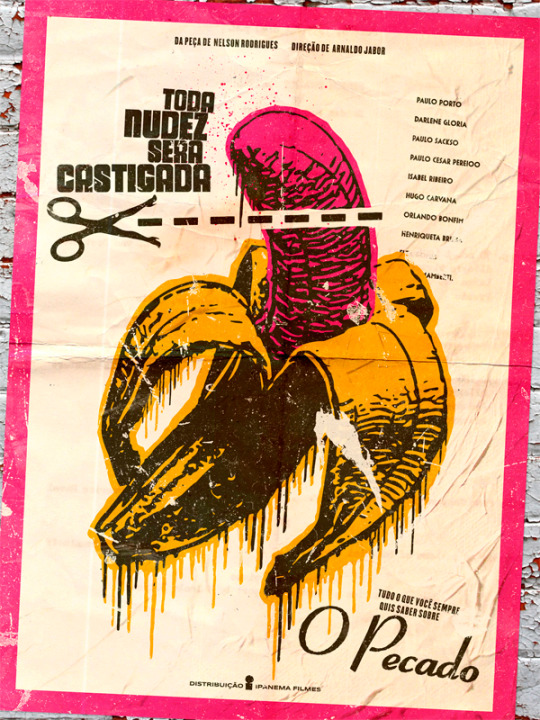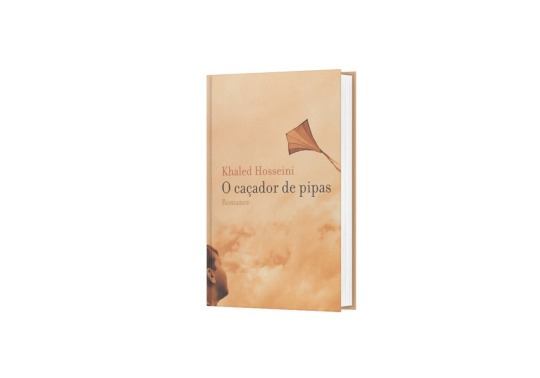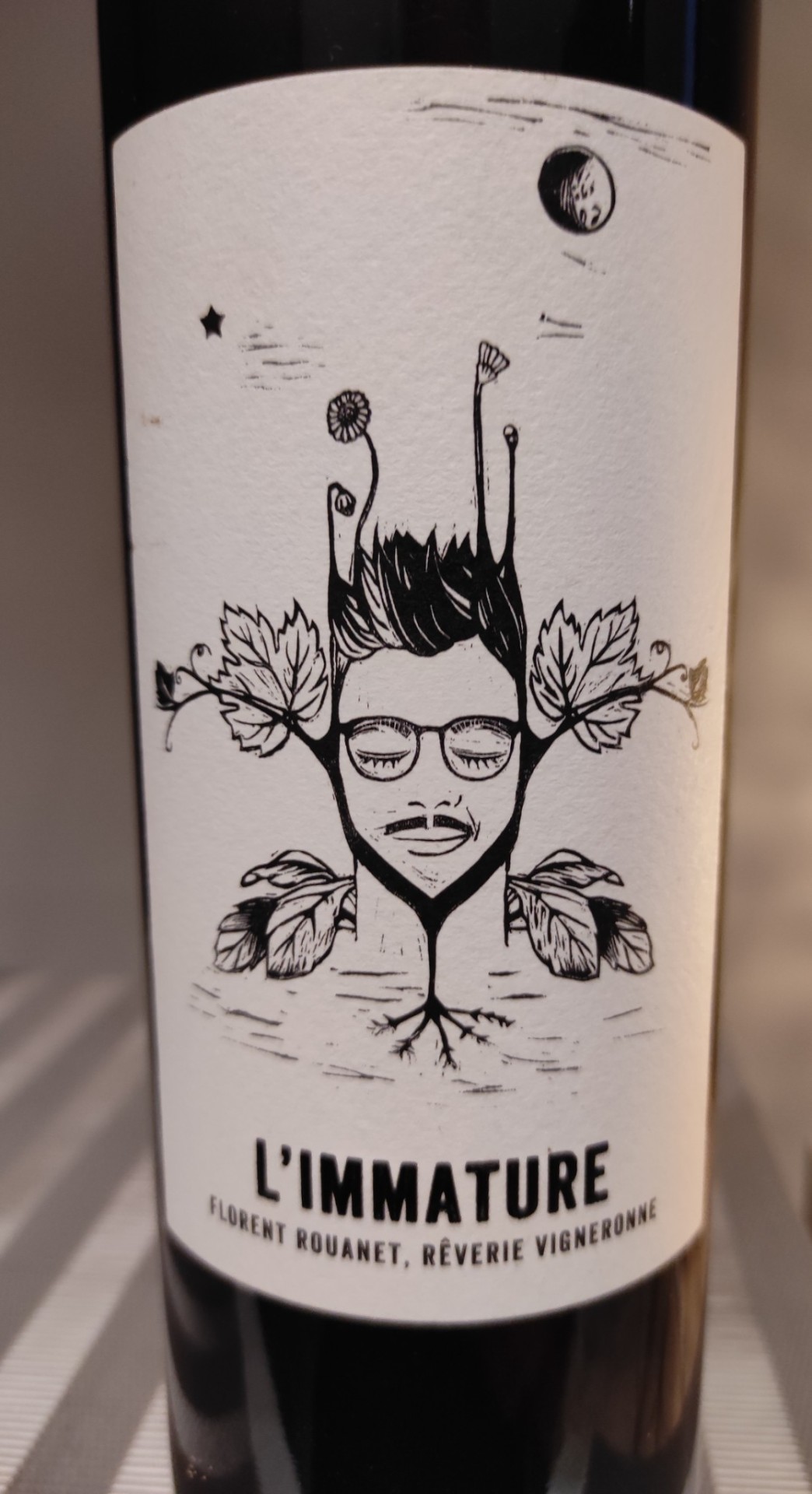#rouanet
Explore tagged Tumblr posts
Text
QUEIMA DE ARQUIVO !
Apagaram as planilhas de pagamento de propina
#foralula #Odebrecht #corrupção #lava-jato #peteolao #mensalão #petrobras #picanha #abóbora #cerveja #servidores #uber
https://youtu.be/PvzZjVUXVf4
#queima de arquivo#propina#corrupcao#lavajato#petrolao#mensalao#fora lula#bandido#ladrao#lei#rouanet
0 notes
Text


"Ecole Gustave Rouanet" créée en brique rouge par l'architecte Emile Blois (1934) découverte lors de la visite-guidée "La Traversée de l'Etonnant Clignancourt" par Sébastien Frasque de "Ça Se Visite" sur Explore Paris, Paris, février 2024.
0 notes
Photo

O Brasil não precisa de ator.. precisa de apoio aos agricultores e alimentos 🇧🇷🇧🇷🇧🇷 pmbnoticias.com #pmbnoticias #socialismo #Verdade #Noticias #Bolsonaro #agro #agronegocio #agropecuaria #alimentos #Rouanet https://www.instagram.com/p/Cohj6AALzHV/?igshid=NGJjMDIxMWI=
1 note
·
View note
Text
Governo Lula libera R$ 16,8 bi via Lei Rouanet e bate o próprio recorde
Ricardo Stuckert O governo Lula autorizou, em 2024, um valor recorde de R$ 16,8 bilhões destinado a projetos culturais via Lei Rouanet. Esse montante supera em R$ 375 milhões o total aprovado em 2023, que foi de R$ 16,4 bilhões, segundo o Ministério da Cultura. O valor de 2024 é quase cinco vezes maior que o de 2022, de R$ 3,5 bilhões, e mais de sete vezes o de 2021, quando foram aprovados R$…
0 notes
Text
Print didático pra vocês deixarem salvo e jogar na cara daquele parente insuportável nesse final de ano:

1 note
·
View note
Text
Zeenix: a nova marca gamer da TecToy está entre nós
A TecToy, empresa brasileira com grande tradição em games no Brasil revelou seu retorno ao mundo dos jogos de forma proprietária em uma nova fase, focado nos gamers brasileiros, com hardware e softwares novos. Durante a showcase realizada no último sábado a anunciou sua nova divisão gamer da empresa, a Zeenix, que além de dois modelos de computadores gamers portáteis, periféricos, jogos…

View On WordPress
#acessórios gamers#computadores gamers portáteis#crescimento da indústria de jogos#Damned 2#eSports#hardware e software#jogos brasileiros#legislação de jogos eletrônicos#Lei do Audiovisual#Lei Rouanet#Master Lemon#mercado de games brasileiro#periféricos#tectoy#TecToy Game Studios#Zeenix
0 notes
Text
El camino de las luciérnagas - Mónica Rouanet (2023)
Atanasio, un adolescente larguirucho, cree ser el centro de las burlas de sus compañeros en el colegio de curas al que asiste en el Madrid de los años 80. Un alumno muy carismático aparece en este nuevo curso y, sin motivo aparente, busca hacerse un hueco en la vida de Atanasio hasta lograr convertirse en su mejor amigo. Junto a él empieza a relacionarse con jóvenes de su edad, a vivir sus…

View On WordPress
0 notes
Text
Los Angeles is close: understand how the financing of sports in Brazil foments Olympic medals
Little known, the system supports high-performance athletes began to be structured at the beginning of the 2000s

It’s almost a tradition: during the Olympic Games, questions about Brazilian performance emerge strongly on social media platforms. Commonly, complaints about the structure and salaries athletes receive become important. However, the right information about how this system works did not get the same attention.
That’s why Brasil de Fato interviewed experts in sports financing to explain how the transfer of public resources to high-performance sports works.
The current public funding system for Olympic and Paralympic sports was developed almost entirely during the first two governments of Luiz Inácio Lula da Silva (Workers’ Party), between 2003 and 2010. The mechanisms that allocate most of the resources are Brazil’s Lottery Law, which sends money directly to the Brazilian Olympic and Paralympic committees and also to the confederations of each sport; the Sports Incentive Law, a mechanism similar to the Rouanet Law, which allows companies to make tax waivers to support sports projects; and the Athlete Scholarship, a monthly payment to athletes who achieve certain results, starting with youth sports.
There are also budget resources from the sports departments of the federal, state and municipal administrations. In addition, in 2008, a sui generis program was created to support the careers of high-performance athletes, the High-Performance Athletes Program (PAAR, in Portuguese) of the Armed Forces. It provides that athletes with a chance of winning medals can apply to join the Army, Navy or Air Force to take part in military competitions. For the athlete, this guarantees income, retirement and use of the Forces' facilities for training.
“Looking back over history, we can see that, over time, Brazil has been expanding and improving its participation in high-performance sports,” says Fernando Henrique Carneiro, a researcher at the Group for Research and Sociocritical Training in Physical Education, Sport and Leisure at the University of Brasilia (Avante/UnB, in Portuguese).
“So much so that in Tokyo [Olympic Games, in 2021], the country had its best results, which was very much the result of what was being built up for the Rio 2016 Games cycle. Over time, the Lula and Dilma governments have been structuring public policies for the sector,” he explains.
Continue reading.
12 notes
·
View notes
Text
O Dia da Maior Mamata Legalizada do Brasil O DIA DO CINEMA NACIONAL
(Texto com

A indústria(?) que é o retrato fiel e arcaico da elite brasileira.
Hoje é o dia da indústria que premia os incompetentes, batem palmas para os fracassados e acima de tudo, se vê como privilegiados, que por trabalharem com cultura, têm completo e o total direito de viver do dinheiro estatal. Para eles, um país não precisa de emprego, poder de compra; comida é tudo irrelevante. País sem cinema, é um país sem cultura sem identidade.
A fase de ouro do cinema nacional foi na primeira metade do séc. XX com as chanchadas.
Não por acaso, ela nunca conquistou a crítica da época, e hoje, sua importância é apenas histórica. Diferente do Funk que é defendido por unhas e dentes pela classe pensadora pelOOOps do Brasil, a chanchada ainda é uma cultura menor de baixa qualidade.
Foi na segunda metade do séc.XX que o cinema começou a ter fomento estatal para criar/manter/proteger a indústria.
Desde então, ainda não surgiu uma “Hollywood” brasileira.
Sabe por quê?
Porque ninguém quer.
Tanto o governo quanto os diretores e produtores.

Vistos como o fruto maior do regime militar, pois sacanagem era permitido, política não, as pornochanchadas mantiveram o cinema vivo, e a Boca do Lixo, de onde provêm vários filmes, bancou muitas obras do cinema nacional na época.
Uma lei de incentivo, seja ela qual for, não deve ser eterna, se depois de décadas de incentivo, de reserva de mercado, os filmes brasileiros mal saem dos festivais, é por haver algo errado com a lei, e até com o setor que a lei fomenta.
A lei, na prática, não exige lucro, contraponto; nada.
Criando produtores e diretores que pouco se importam com a venda de bilhetes. O deles está garantido. Pelo contrário, todos fazem cinema pra agradar a sua bolha, a Zona Sul Carioca.
Cinema brasileiro não é cultura, não é povo, nunca será uma indústria.
Dá trabalho fazer filmes para agradar a massa, aliás, o cinema é tão importante que está acima do povo.
Se o povo não entende os filmes brasileiros, é porque o filme nacional é grandioso demais para ser visto e entendido pelo cidadão comum.
Por aqueles que bancaram via impostos, por aqueles que terão menos comida, roupa, e contas mais caras, para bancar as reuniões, os debates, os caros vinhos, charutos, viagem e hospedagem, da elite que fabrica e encena filmes.
Como disse um falecido humorista dos tempos da Chanchada:
“Põem defeito em tudo que o povo gosta.”

Apesar de até hoje ter o seu cu cheirado pelos cinéfilos, na boca pequena, Glauber Rocha é visto como o maior espanta público dos cinemas do Brasil. O destruidor da "indústria". Aplaudido e venerado pela intelectualidade brasileira e francesa, seus filmes são unanimes: Chatos de assistir, pior ainda de entender.

The Day of the Largest Legalized Mamata in Brazil
THE NATIONAL CINEMA DAY
The industry(?) which is the faithful and archaic portrait of the Brazilian elite.
Today is the day of the industry that rewards the incompetent, applauds the failures and, above all, sees itself as privileged, who, for working with culture, have the complete and total right to live on state money. For them, a country does not need jobs or purchasing power; food is all irrelevant. A country without cinema is a country without culture without identity.
The golden age of national cinema was in the first half of the 20th century. XX with the chanchadas.
Not by chance, it never conquered the critics of the time, and today, its importance is only historical. Different from Funk, which is defended tooth and nail by the thinking class by the OOOps in Brazil, chanchada is still a low-quality minor culture.
It was in the second half of the 20th century that cinema began to receive state support to create/maintain/protect the industry.
Since then, no Brazilian “Hollywood” has yet emerged.
Do you know why?
Because nobody wants to.
Both the government and the directors and producers.
An incentive law, whatever it may be, should not be eternal, if after decades of incentives, market reserve, Brazilian films barely make it out of festivals, it is because there is something wrong with the law, and even with the sector that the law encourages.

The law, in practice, does not require profit, counterpoint; anything.
Creating producers and directors who couldn't care less about ticket sales. Theirs is guaranteed. On the contrary, everyone makes movies to please their bubble, the South Zone of Rio de Janeiro.
Brazilian cinema is not culture, it is not people, it will never be an industry.
It takes work to make films to please the masses, in fact, cinema is so important that it is above the people.
If the people don't understand Brazilian films, it's because the national film is too great to be seen and understood by the common citizen.
For those who paid for it through taxes, for those who will have less food, clothing, and more expensive bills, to pay for meetings, debates, expensive wines, cigars, travel and lodging, for the elite that manufactures and stages films.
As a late comedian from the days of Chanchada said:
“They find fault with everything the people like.”

The only film awarded the Palme d'Or at Cannes. The festival completely lost its relevance, well before the Oscars, which is at rock bottom, for insisting on identity, not good stories. Almost all of South America has its Oscar. Brazil none.

Example of Brazilian Chanchada. Comedies and musicals that revolved around revue and carnival theater, which dominated movie theaters in the first half of the 20th century. With its end, Brazilian cinema was never the same again.
#cinema#movie#oscarito#grande otelo#hollywood#diretor de cinema#produtor de fime#zona sul carioca#portuguese#rouanet#brasil#texto del dia#texto reflexivo#texto próprio#cultura#art#arte#pôster de filmes#chanchada#pornochanchada#boca do lixo
1 note
·
View note
Note
What complicated laws does Brazil have regarding video games, to sum it up? 😮 Is it better for the consumer overall, and less allowing of game publishers to get away with many shady and financially exploitative things?
Our game laws are pretty new, as the what we call Marco Legal dos Jogos was just approved and turned official a month ago! To sum things up:
Brazilian law views videogames in the same remark as cinema and literature. This means that any indie devs can apply for programs to financially support our games! Rouanet Law has the purpose to help our art scene grow, so a small filmmaker can apply to it and receive money to make a short movie, for example. With the Marco Legal, indie game companies and developers are also able to do the same thing. This is extremely good, and will help our developer scene grow a lot!
Also by law, videogames are obligated to protect minors. This was also obligatory before but now it's a bit more robust. Companies must take care of in-game chatting and to make sure any minors buying in-game things with actual money have parental permission to do so. There's some more complex stuff as well, but if what is happening during a game is putting a minor in danger the case can easily go to court. It is also obligatory for online games to have channels where you can report bad behavior and to be transparent about it.
Gambling is not covered by the Marco Legal. ALSO APPARENTLY THEY TRIED TO SHOVE IT INTO THE MARCO LEGAL, but thankfully this was discarded way before it turned legal. No gambling is going to steal money away from actual indie devs!
Also taxes regarding games are going to be more forgiving.
Overall, this is very, very good, for both developers and consumers! There's a lot more about copyright, but a tldr of it is "gamedevs are very happy about it"!
16 notes
·
View notes
Text
resenha #3 ︱o caçador de pipas

"Por você, faria isso mil vezes!"
avaliação: ★★★★★
Khaled Hosseini, autor afegão formado em medicina e premiado diversas vezes, teve a obra "O Caçador de Pipas" levada à 29 países após tornar-se popular. Tendo estreado no mercado editorial em 2003 com o livro, Hosseini rapidamente se tornou um fenômeno literário ao redor do mundo, podendo citar "A Cidade do Sol" como outra de suas obras aclamadas.
Em "O Caçador de Pipas" acompanhamos dois irmãos de coração, Amir e Hassan que, inicialmente, levam uma vida calma no Afeganistão. Hassan e seu pai trabalham para a família rica de Amir, vivendo desde que se entendem por gente no pequeno casebre atrás da casa principal. Cresceram como dois irmãos, beberam leite do mesmo peito, dividiram seus pais e empinaram pipas juntos.
Ao decorrer da história, somos expostos a situações delicadas que mudam o percurso de todos os detalhes antes vistos; a invasão do regime Talibã, golpes comunistas e uma mentira que apodrecerá dentro de Amir e colocará a relação com todos que mais ama em jogo.
"Quem mente também rouba. Rouba o direito do outro de saber a verdade."
A fama de Khaled se deu principalmente pelo poder que sua escrita e habilidades de narração tem de levar o leitor diretamente ao Afeganistão. Na maior parte do livro, me senti tão imersa que para onde ia, sentia a necessidade de levar o livro comigo. Sendo metade Argelina, sempre gostei muito de livros que englobam a cultura árabe e ver pequenos detalhes, termos e acontecimentos que me são familiares foi como um golpe de nostalgia.
A relação de Amir com seu pai foi muito bem construída. O ciúmes que sente de Hassan, a insegurança e culpa que sente pela morte da mãe e a luta constante para fazê-lo enxergar o filho e como isso acabou afetando, também, sua relação com o meio irmão Hassan.
O livro é absurdamente doloroso, um tapa na cara sem aviso prévio. Antes de começar a leitura, já tinha visto muito sobre principalmente nas redes gringas dizendo que era uma leitura obrigatória na lista dos leitores que amam ler livros para chorar feio. Eu não pensei que fosse ser tão pesado assim.
Recomendo para todos que se interessam pela história do Afeganistão, ou que simplesmente buscam por um livro que possa deixá-los a beira de lágrimas. Mas também vou dizer que este não é um livro para qualquer um, visto que trata de temas pesados como estupro, morte e violência explícitos. Trabalha com o luto parental, morte em trabalho de parto, e menção constante a estupro. Então caso queira ler, não deixe de checar todos os gatilhos ao fim dessa resenha.
Pretendo reler no futuro, quando tiver coragem de ler certas cenas outra vez. Foi uma experiência maravilhosa; tendo lido 4 meses atrás, ainda consigo pensar em todas as cenas e em como a história me comoveu e comove até hoje.
Meu único pedido é que leiam essa obra prima e façam ela viralizar outra vez entre os brasileiros, esse livro merece todo o reconhecimento que recebe há mais de 20 anos, contando até com uma adaptação para televisão e uma versão em quadrinhos!
"Descobri que não é verdade o que dizem a respeito do passado, essa história de que podemos enterrá-lo. Porque, de um jeito ou de outro, ele sempre consegue escapar."
informações do livro:
Editora: Nova Fronteira.
Páginas: 365.
Gênero literário: romance.
Autor(a): Khaled Hosseini.
Tradução: Maria Helena Rouanet.
Classificação indicativa: +16
Data de publicação no Brasil: 1 de outubro de 2013.
Data de publicação original: 29 de maio de 2003.
Gatilhos: estupro, abuso sexual (infantil incluso), terrorismo, guerra, suicídio, parto de natimorto, bullying, ansiedade, depressão, doença terminal, morte, pedofilia e molestamento.
sinopse adicional:
'Amir é inseguro e está sempre em busca da aprovação do pai; Hassan é valente, leal e generoso. Apesar de diferentes, os dois cresceram juntos, com as mesmas brincadeiras e assistindo aos mesmos filmes. Até que um dia, durante um campeonato de pipas, Amir perde a chance de defender Hassan ― e esse episódio marca a vida dos dois amigos para sempre.'Amir é inseguro e está sempre em busca da aprovação do pai; Hassan é valente, leal e generoso. Apesar de diferentes, os dois cresceram juntos, com as mesmas brincadeiras e assistindo aos mesmos filmes. Até que um dia, durante um campeonato de pipas, Amir perde a chance de defender Hassan ― e esse episódio marca a vida dos dois amigos para sempre.
Vinte anos mais tarde, após Amir ter abandonado um Afeganistão tomado pelos soviéticos e ter se estabelecido nos Estados Unidos, ele retorna ao seu país de origem, agora dominado pelo regime Talibã, e tem a oportunidade de acertar as contas com o passado.'
links uteis:
compre o livro em:
#livros#literatura#book tumblr#tumblr#books#book#livro#lendo#ler#leitor#reader#author#autor#escrevendo#escrever#iniciativa#resenhas#resenha#escritor#writer#opinião#opinion#leitura#avaliação#nota#khaled hosseini#o caçador de pipas#the kite runner#adaptação#brasil
21 notes
·
View notes
Photo

Qual a necessidade de jogar o nosso dinheiro fora com artistas milionários da globo? O que a sociedade ganha com isso? Com tanta coisa mais prioritária para o governo se preocupar!! Absurdo!! Esse é o tipo de gestão do PT.. jogando no lixo o dinheiro do contribuinte! pmbnoticias.com #pmbnoticias #rouanet (em São Paulo capital) https://www.instagram.com/p/Cnm3j_9vddy/?igshid=NGJjMDIxMWI=
0 notes
Text
🇫🇷❓❓Hello les amoureux du tire-bouchon. Et vous connaissez vous les vins de Cabardès en rouge❓❓🇫🇷


.
🍇🍷L'immature rouge vin de Cabardès de Florent Rouanet 🍇🍷:
.
🍇 :
Syrah
Merlot
Marselan
Grenache noir
.
🏺:
Vinification traditionnel en cuve
.
💰:
Non communiqué par le Domaine
.
👁️ :
Robe de couleur rouge foncé avec des reflets violet
.
👃 :
Un nez sur des notes de fruits noir (cassis, mûre, myrtille, prune).
.
💋 :
En bouche on a un vin avec des tanins ronds et soyeux grâce au Grenache. Sur des arômes de fruits rouges, juteux et croquants (cerises, framboises, groseilles). Une longueur en bouche moyenne avec une finale sur des notes gourmande de chocolat noir.
.
📜En résumé📜 :
Une belle cuvée et un vigneron prometteur. Pour ma part j’ai été conquis par cette première cuvée d'une longue série à n'en pas douter. Belle découverte.
.
🧆Dégusté sur Carré d'agneau rôti au thym🧆.
.
🍷Quelques accords mets et vin possible avec cette cuvée🍷 :Chapon, Cuisse de dinde rôtie, Cuisses de pintade, Lapin rôti.....
.
📌N'oubliez pas, boire un canon c'est sauver
un vigneron. Allez voir le site internet du domaine pour voir toutes les cuvées et promotions du moment📌.
.
🔞« L'abus d'alcool est dangereux pour la santé, à consommer avec modération »🔞
.
#lesdegustationsugo #winelover #wineenthusiast #winestagram #winefolly #wineinfluencers #picoftheday #winetasting #winetime #wineoftheday #winebottle #winelife #wineblogger #sommelier #instawine #winenot
3 notes
·
View notes
Text
Lula autoriza R$ 16,5 bilhões para Lei Rouanet; maior valor em 21 anos
Reprodução O valor aprovado para projetos culturais via Lei Rouanet em 2023 chegou ao recorde histórico de R$ 16,5 bilhões. É mais do que o quádruplo do que aprovou o governo do ex-presidente Jair Bolsonaro (PL), crítico da lei, em 2022 (R$ 3,6 bilhões, em valores corrigidos pela inflação). O valor de 2023 também supera a soma de tudo o que foi aprovado pelo governo Bolsonaro em 4 anos (R$ 15,2…

View On WordPress
0 notes
Text

Hienas Bolsonaristas não entendem de lei Rouanet, vou explicar, ela NÃO RECEBEU 1 REAL dos 5 Milhões,o Gov .não dá dinheiro,ele da um documento onde no caso dela ou de QQ um que tenha a lei,possa captar,tem autorização p captar..Então não adianta plantar Fake News,não adianta querer criar factóides.Entenda primeiro como a lei funciona pra depois querer lacrar e encher o saco com cobranças que não são verdadeiras. E outra Bolsonaro acabou com a Cultura no Brasil,será preciso reconstruir...
3 notes
·
View notes
